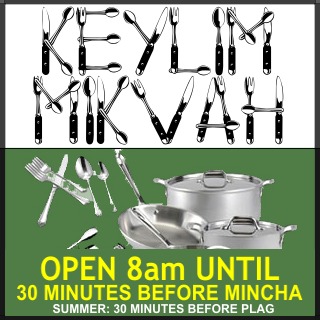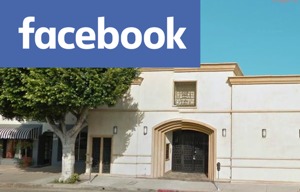PARSHA: KORACH
I. Summary
A. Korach’s Rebellion. A revolt against Moshe and Aharon was led by a group of Levi’im (led by Korach) and Reuvenites (led by Dasan, Aviram and On) and included 250 prominent members of the Assembly. Korach was angered that Aharon and his sons were designated to replace the firstborns as the only ones who could perform the sacrificial service (Ibn Ezra) (per Rambam, Korach was angered that Aharon was made Kohein Godol [High Priest] and/or that their cousin Elizaphan was put in charge of the Kohathite family, thus making him Korach’s superior); Dasan and the others claimed a right of leadership based upon their descent from Reuven.
B. Moshe’s Challenge. Moshe challenged Korach and his followers to appear the next day. After warning the people to stand clear, Moshe announced that Hashem would select their leader in the following manner: if the rebels died a natural death, Moshe would be proven wrong; if, however, they were swallowed alive by the earth, Moshe’s leadership would be confirmed. As soon as he finished his announcement, Korach and his followers (and their possessions) were swallowed alive.
C. The People Again Murmur Against Moshe. The people again began to murmur against Moshe, blaming him for the death of Korach and his followers. As a result, they were punished by a plague which killed 14,700 people and only subsided when, at Moshe’s instructions, Aharon walked among the people with a pan of incense.
D. New Proof of Aharon’s Greatness. Hashem ordered the prince of each tribe to bring a rod engraved with his name to the Tent Of Meeting to be placed (along with a rod from the Tribe of Levi with Aharon’s name) before the Ark. The next morning, only Aharon’s rod had produced buds, blossoms and almonds, providing indisputable proof that Hashem has chosen Aharon to be Kohein Godol; Aharon’s rod remained in front of the Ark for future generations as a warning not to challenge the right of Aharon’s lineage.
E. Contributions to the Koheinim/Levi’im. Because the Koheinim and Levi’im had no specific portion of Israel, they were to be supported by contributions from the people. The Koheinim received provisions such as Bikurim (First Fruits), Pidyon Bechorim (First Born), Terumah (a portion of each person’s produce) and various offerings. The Levi’im received Ma’aser Richson (10% of each person’s produce, of which he would have to set aside a portion for the Kohein).
II. Divrei Torah
A. Lil’Mode U’lilamed (Rabbi Mordechai Katz)
A Wife’s Influence. The Parsha shows the extent of a wife’s beneficial influence — On’s wife persuaded him to disassociate himself from the rebellion and, as a result, he was spared the fate that befell the others. In addition to producing many great prophetesses (e.g., Sarah, Rivkah, Rachel, Leah, Miriam, Devorah, Ruth, Esther, etc.), Jewish history has also borne out the Jewish wife’s importance in keeping the Jewish family together and functioning as a pillar of Jewish life. The Torah calls a wife “Ezer Kenegdo” (a “helper opposed to him”); a wife knows her husband’s true features/faults and is thus able to encourage him when he is on the right path and “oppose” him when he is on the wrong path. (As Bava Metziah states “it is because of his wife that a man’s house is blessed”; Shabbos 25 states “who is rich? he who has a fine wife”.)
B. Growth Through Torah (Rabbi Zelig Pliskin)
1. Keep your focus on the goal of doing for Hashem. Rashi notes that Korach was motivated by his envy of another relative who received a honor which he did not. Envy can be very destructive, for it prevents us from enjoying what we have. To overcome envy, you should focus on what you yourself have and on what you yourself can accomplish in this world. Rabbi Levi Yitzchok of Berditchev also notes that a righteous person’s main goal is to give pleasure to Hashem; to such a person, there is no difference if he or someone else causes such pleasure. By keeping this focus, we can relish others’ accomplishments and avoid envy.
2. When someone speaks against others realize that he could just be projecting his own faults. The Kotzker Rebbe commented that people who quarrel with the righteous try to find complaints in ways that are the exact opposite of the truth. Moshe was the most humble of all men, and Aharon’s constant pursuit of peace demanded much humility; yet, Korach claimed that they were acting arrogantly and taking too much power for themselves. This teaches us to be careful not to believe “loshon hora” (gossip/slander), for one who finds faults in others is often projecting his own faults onto them. As Rabbi Abraham Twerski notes, the Talmud teaches that “one who seeks to disqualify another projects his own defects upon him.” (Kiddushin 70a) Korach could have had a distorted perception of Moshe because he projected his own real character flaws onto him. The Bal Shem Tov elaborated on this, saying that world around us acts as a mirror, and that what we see in others is generally our own reflection.
3. Keep trying to make peace. “And Moshe sent to call Dasan and Aviram the sons of Aliav, and they said we will not go up.'” Rashi says that this teaches us that we shouldn’t keep up a quarrel; rather, like Moshe, we should take the initiative to make peace. Even if someone is obstinate, a new approach or strategy might work to bring about peace. One important principle for bringing about peace is the willingness to apologize; a person who sincerely loves and seeks peace will be willing to apologize, even if he doesn’t believe that he did anything wrong. In the clear majority of situations, we lose nothing by saying “we’re sorry” and gain much in terms of harmony and peaceful relationships.
4. During a quarrel focus on making peace not on blaming. “There shall not be like Korach and his congregation”. Rabbi Chaim Shmuelevitz commented that this verse can be read: “there will not be quarrels like that of Korach and his followers”. In this instance, Korach was entirely wrong, and Moshe was entirely right. But in most situations, it’s not so clear-cut. When we quarrel, we should ask ourselves that we did to contribute to the quarrel, rather than focusing our energy on blaming the other person.
C. Majesty of Man (Rabbi A. Henach Leibowitz)
Appreciating the strength of a human being. How could Korach make such a fatal judgment error particularly since, as Rashi notes, he was extremely intelligent, insightful and even worthy of prophecy? Korach felt that he had the necessary justification for the revolt because of a prophecy he had in which it was revealed that the great prophet, Shmuel, would descend from his lineage; thus, he concluded that he would not be punished by death. However, he overlooked the possibility that his sons would have the fortitude to repent and that Shmuel would come from them. Korach failed to appreciate the inherent strength of a human being, the extent of greatness of the soul and the spark of G-dliness in every Jew.
D. Peninim on the Torah (Rabbi A.L. Scheinbaum)
Seeing with both eyes. As noted above, Rashi comments that Korach’s “eye” deceived him into believing that Shmuel would descent from him. Didn’t Rashi mean his “eyes”? Horav Boruch Sorotzkin, zt’l explains that when one looks at something, he should perceive it from all angles (i.e., with both eyes, rather than glancing at it perfunctorily). Horav Sorotzkin explains the reference in Pirke Avos to “judge all men favorably” to mean “judge all of man favorably”; that is, one should look at the whole individual at all times, not simply react to an isolated situation. Had Korach seen with both eyes, he would have realized that his greatness would emanate from his children, who later repented. Korach’s one eye (i.e., his superficial and prejudicial outlook) was the origin of his downfall.
E. Kol Dodi on the Torah (Rabbi David Feinstein)
“And Korach Took . . . ” The Torah doesn’t tell us what Korach took. The truth is that Korach took everything for himself. Hashem entrusted him with great wealth to use for Hashem’s service, but Korach made the mistake of thinking he earned it himself. By contrast, a wealthy person who acknowledges that his wealth really belongs to Hashem and regards himself as nothing more than the administrator of a trust fund will find his wealth to be a true blessing. If he diligently and faithfully oversees the fund in accordance with the wishes of Hashem, its true Owner, he can be assured a handsome return in this world and the world-to-come.
F. Love Thy Neighbor (Rabbi Zelig Pliskin)
Be wary of the motivations of someone who instigates a dispute. Korach tried to give the impression that he was interested in the equality and welfare of the entire nation, when he was really motivated by envy. Often one who instigates a dispute is motivated by his desire for personal gain; in order to attract followers, however, he may claim that he is interested in the good of others. We should be aware of this tendency, so that we aren’t misled by people who desire to create a dispute.
G. The Chassidic Dimension (the Lubavitcher Rebbe, Rabbi Menachem M. Schneerson, z’tl)
Unity vs. Uniformity. Underlying Korach’s rebellion was his charge that “all the people in the community are holy and G-d is in their midst; why are you setting yourselves above G-d’s congregation?” Korach seems to be advocating unity among the Jewish people; why, then, did his actions lead to so much discord and dissent? The Midrash analyzes Moshe’s answer to Korach — “In the morning G-d will make known . . . ” — to mean “G-d has placed boundaries in His world . . . Can you possibly intermingle night and day? . . . So, too, has He separated Aharon . . . You will have the same chance of negating Aharon’s separate sanctity as you have of undoing G-d’s separation of night and day.” The Midrash can be understood to mean that G-d created the world so that each created being is different and distinct; only when each aspect of creation fulfills its own purpose can it unite with the rest of creation in implementing the total purpose of the greater whole. As the Alter Rebbe explains, all Jews are part of one whole and need each other, like the different parts of the human body constitute a complete person. Just as each limb possesses its own characteristic and unique quality that benefits the body as a whole, so, too, are the Jewish people divided into different spiritual “limbs”; each Jew has his own mission and task and each benefits all other Jews by accomplishing his unique function. Until the coming of Mossiach, when holiness will exist truly as one entity, differences in intensity of performance and levels of sanctity are indeed necessary.
H. In The Garden of the Torah (the Lubavitcher Rebbe, Rabbi Menachem M. Schneerson, z’tl)
The Potential Harmony in Differences. Chazal teach that a person shouldn’t be named after a wicked person. Why, then, is the Parsha named “Korach”? Korach’s desire was, in essence, positive; he wanted to be Kohein Godol, to experience the absolute closeness with G-d that results from entering into the Holy of Holies. (In fact, as Rashi relates, even Moshe said that he shared the same desire.) Thus, Korach highlights the potential for spiritual growth that we each possess, and the desire we should show to make it manifest. However, good intentions aren’t enough; for Korach’s action led to controversy and division (and, ultimately, thousands of deaths). Division runs in direct opposition to Torah which was given “solely to bring peace to the world” (Rambam). Yet, division need not, however, run contrary to our desire for peace and unity. In fact, unity is more complete when it encompasses divergent entities, each with a nature of its own. This is the intent of Torah — not that differences shouldn’t exist, but that they should be merged into synergistic harmony. Thus, there is a place for Korach in the Torah, for the Torah teaches that if we can see the potential harmony, division can serve a positive purpose.
I. Living Each Week (Rabbi Abraham Twerski)
1. The Distortions of Anger. The Torah testifies that Moshe was the humblest of all men on earth. How absurd that Korach and his clan should accuse Moshe of vanity and making himself superior to all others! This is precisely the point that the Torah teaches us. When we become involved in a personal dispute, when we become angry, we may lose all sense of logic and strike out against others indiscriminately.
2. The meaning of prayer. Why did Moshe have to pray to G-d not to accept the offering of Korach? Inasmuch as he knew that Korach was defying the Divine will, was it not self-evident that G-d would not accept this offering? The effectiveness of prayer is something that is not easily explained. While some aspects of prayer may be beyond our grasp, one of the explanations is that prayer is not intended to bring about a change in G-d, but in the supplicant. When we relate to G-d in prayer, we may undergo salutary changes. For example, a woman who was bitterly disappointed when her newborn child turned out to have Down’s Syndrome, related that she had prayed fervently. “Please G-d, You have performed so many miracles, do just one more. Change him.” She went on to say, “one day the miracle occurred: G-d changed me.” What she was really saying was that ultimately her prayers helped her accept G-d’s will. We can now understand that Moshe, finding himself in a state of distress, did what the Torah prescribes: He prayed for Divine assistance. Moshe’s payer, like all sincere prayer, was thus not intended to bring about any changes in G-d, but in himself. That is what all prayers should do.
J. Divrei Torah (National Council of Young Israel)
Arguments “l’shem shamayim”. As noted above, Korach began his argument in a most altruistic tone, yet in truth it was a personal and selfish rebellion. The Jewish world stands are a crossroads. Both within and among the among the various movements, there are crucial decisions to be made and honest differences to be expressed. How tragic when we read of arguments that swerve from substance and center upon the personal. They become springboards for “loshon harah” (gossip) and causeless animosity when they could become forums for understanding and cooperation. It is time that frank discussion reflect the discussions of Bet Shammai and Bet Hillel, arguments “l’shem shamayim” (for the sake of Heaven) that did not cause a breach in the Jewish world, rather than the arguments of Korach and his cohorts, personal attacks and malicious slander that can only lead to destruction and tragedy.
NEXT SHABBOS: CHUKOS





 Visit the group and request to join.
Visit the group and request to join.
